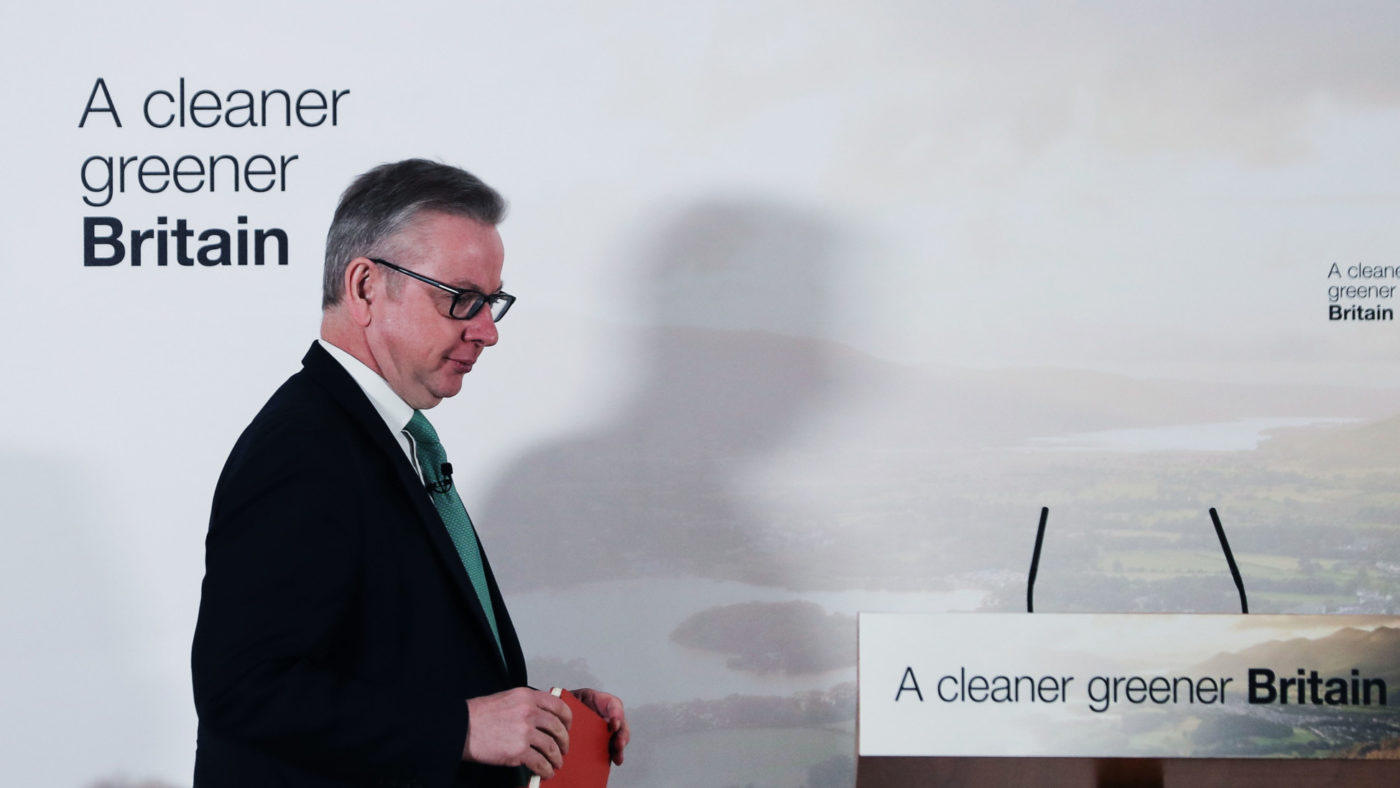What is behind Michael Gove’s love for all things environmental? Despite David Cameron’s attempt to paint the Conservatives as “Green”, the party has never really enjoyed much of a reputation as being particularly pro-environment. That mantle has tended to rest with the Liberal Democrats and, naturally, the Green Party. Could it be that Gove is determined to really clean up the state of the nation, or could there be other motives?
As a politician and the Environment Secretary Gove knows that he requires publicity to help win re-election, and environmentally friendly policies are typically attractive to the younger portion of the electorate. But is there more to the proposals than PR and votes?
The answer is quite possibly yes.
Environmental legislation often acts as a powerful protectionist measure. Non-compliance of domestic environmental standards can result in goods being excluded from the UK’s internal market.
This form of non-tariff barrier has become increasingly popular in recent years.
In 2009 the NGO World Growth report noted in relation to the European Union that it was: “seeking to impose environmental trade restrictions on food and forestry products which serve to protect European producers and harm viable sources of growth in developing countries. This action is not new. It is reflective of a longer term trend in the rise of environmental trade protectionism… requirements are increasingly being used as a policy tool to shield products from international competition.”
Protectionism of this nature has spread beyond food and timber products and has become visible in biofuels and agricultural products; it also reaches into the industrial sector.
A very good example is that of 2013 when Russia lodged its first-ever complaint with the World Trade Organisation (WTO), which it joined in 2012, claiming that the EU was in violation of the anti-dumping provisions of the WTO agreement. The issue stemmed from an “energy adjustment”, imposed by the EU in 2002 on Russian exports of steel and fertiliser products. Russia claims that, in the application of the adjustment (which, it says, penalises its companies for the low energy prices they enjoy), the EU is able to give domestic producers an unfair advantage, costing Russia hundreds of millions of euros each year in lost opportunities.
It is easy to see then how, in the post-Brexit world, Michael Gove and the Tory Government will try – and potentially be able – to shield British produce from overseas competition by increasing levels of environmental legislation.
It just happens also to be a useful method of raising Government revenue.
In 2015 the UK Government examined the size and composition of environmental taxes between 1993 and 2014. Its main findings showed that environmental taxes raised £44.6 billion in the UK in 2014, providing 7.5 per cent of all revenue from taxes and social contributions. Many of these taxes are highly visible, such as fuel duty, VAT on fuel bills, landfill taxes and so on, but others such as the carbon floor price, are more subtle. Others like the plastic tax are currently under consideration.
Using Green Taxes to bolster the UK budget from any adverse effects of Brexit is easily sold to the voting public as they tend to be small in size and adhere to the “Polluter Pays” principle. Additionally, the public is led to believe that it is big businesses that will ultimately pay these taxes in a “Green Robin Hood” manner. But the reality is that the polluters simply pass on the cost to the consumers, mostly at a compound rate.
Some of the environmental taxes can hit two birds with one stone: a carbon levy placed on imported goods according to their transport carbon footprint would make domestic production cheaper, and raise revenue for the Government.
In conclusion, one has to look at Gove’s attempts to increase his and the Government’s environmental profile and consider carefully what the true intentions are. Appeal to the voters as a saviour of the planet or a politician bent on self-promotion, a protectionist, or a tax grabber?
Maybe a combination of all of those, or maybe just a good guy trying to do the right thing by the environment – the jury is out.


